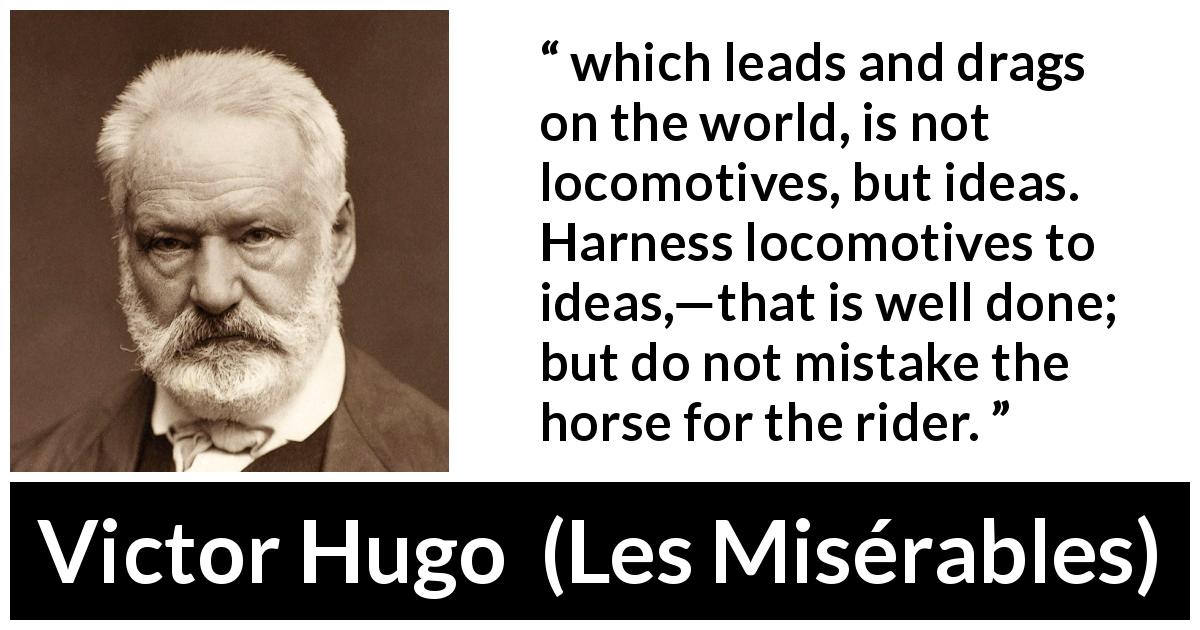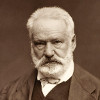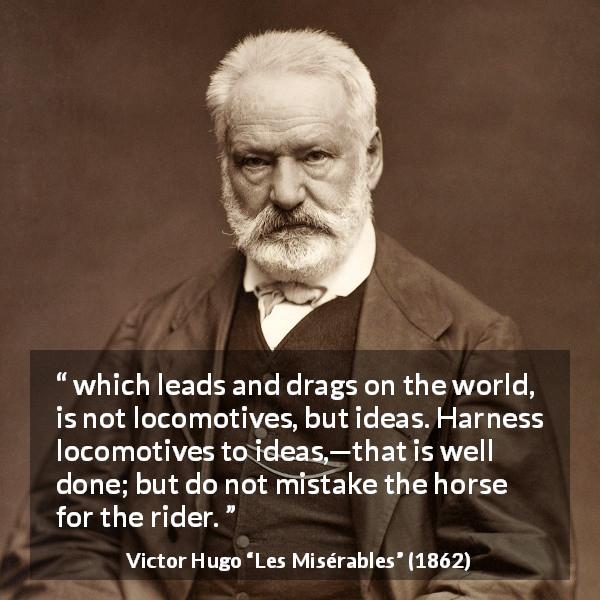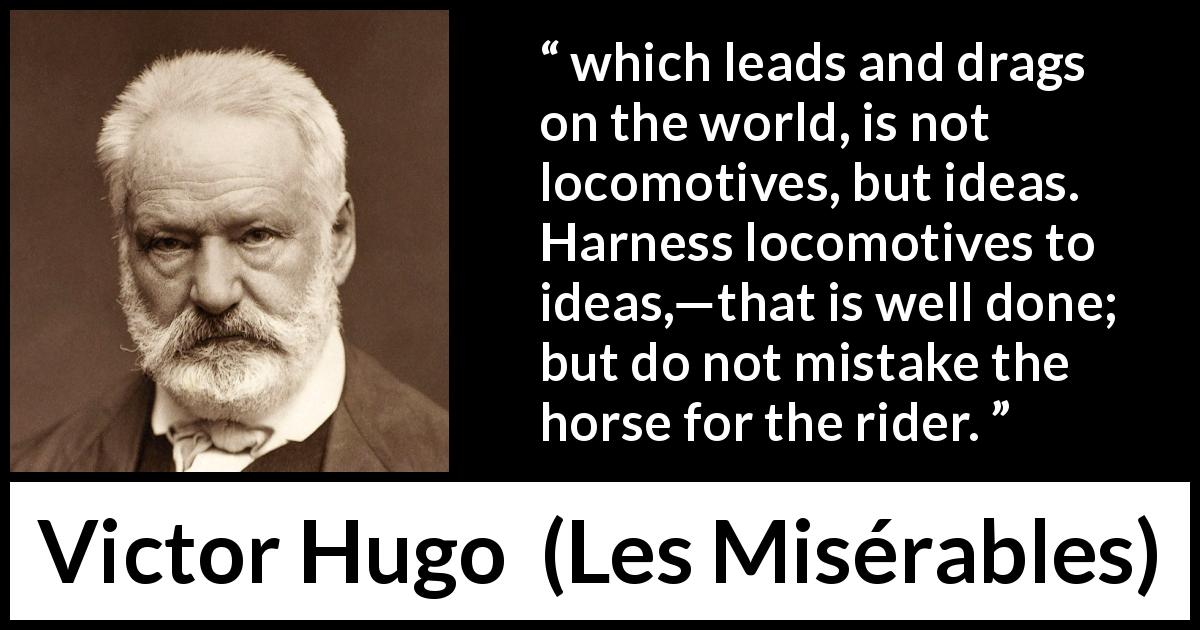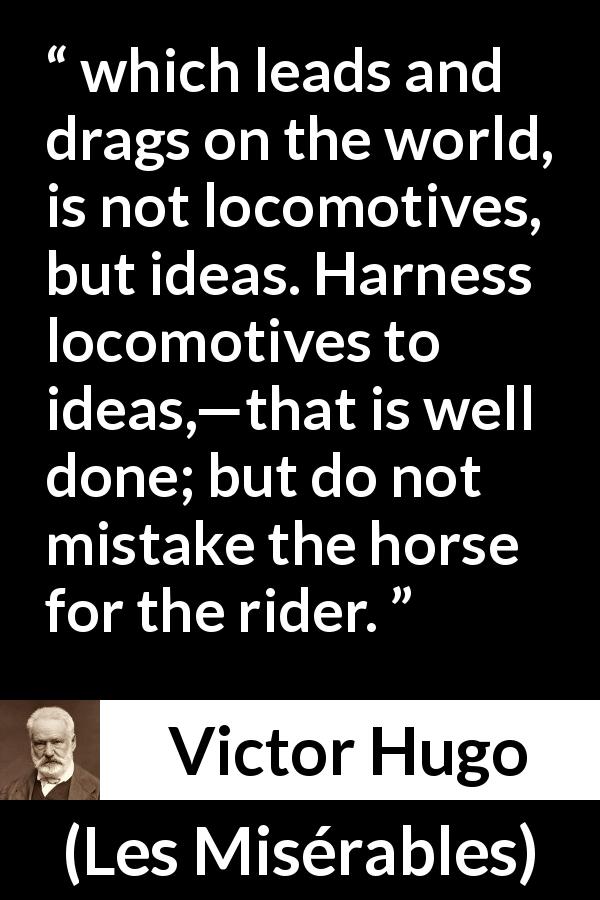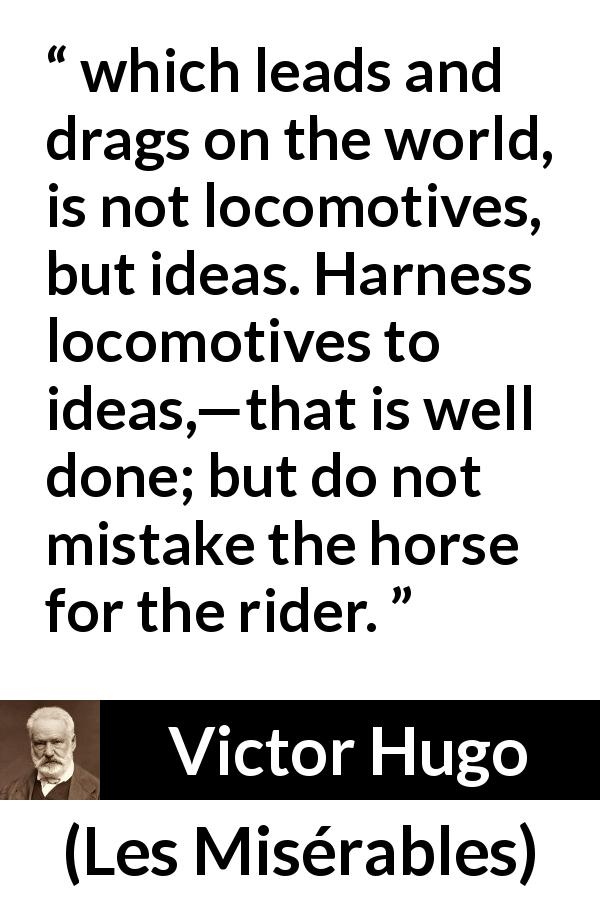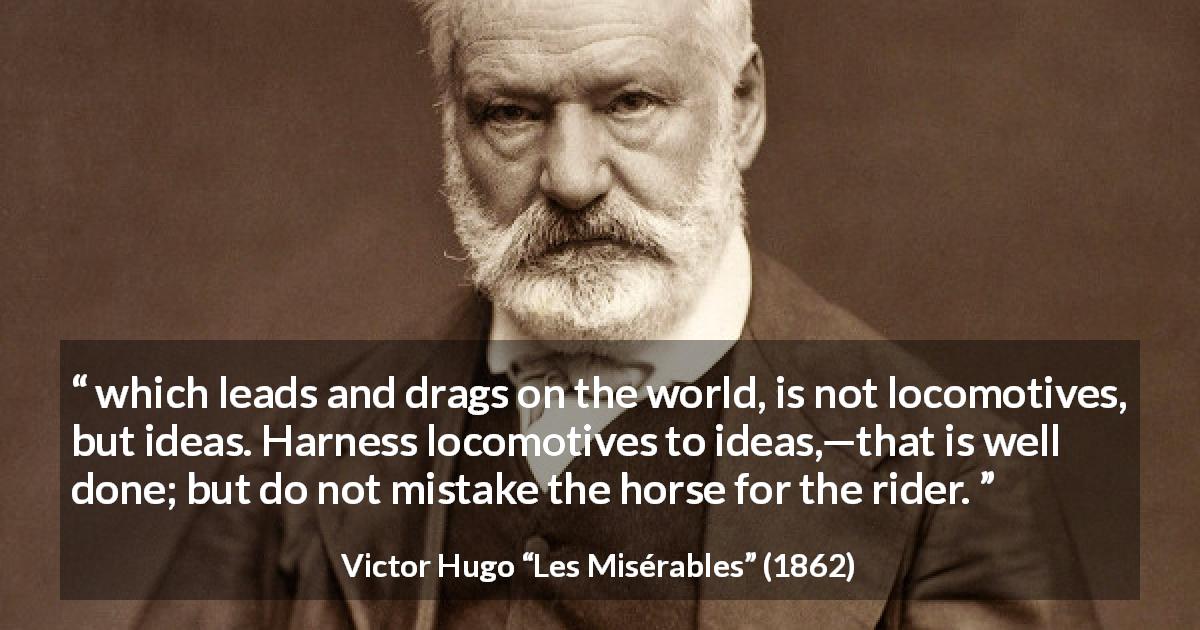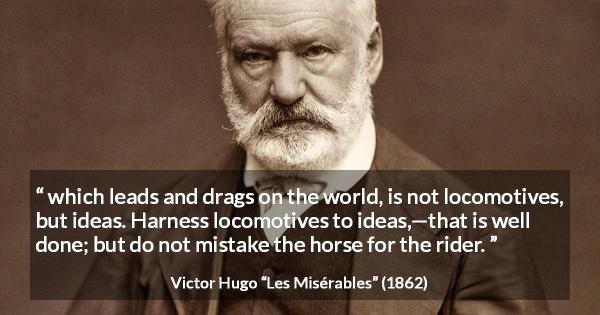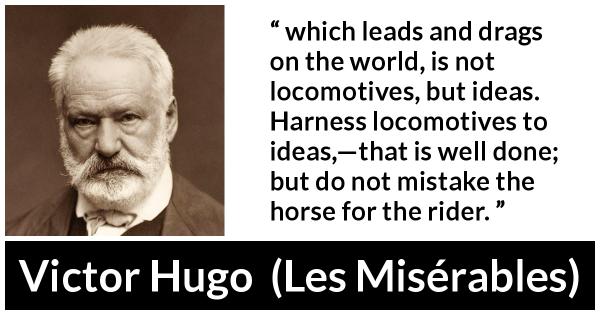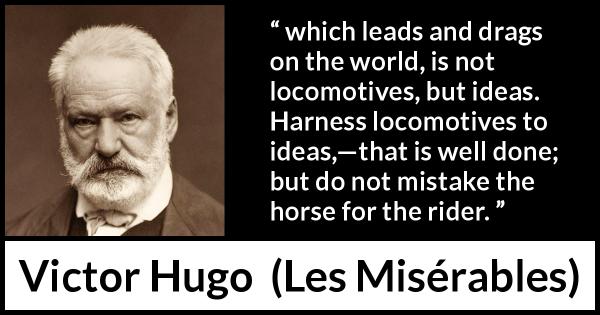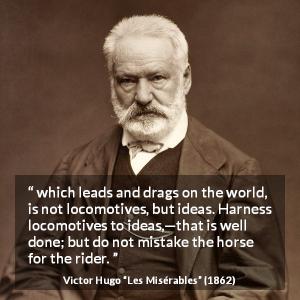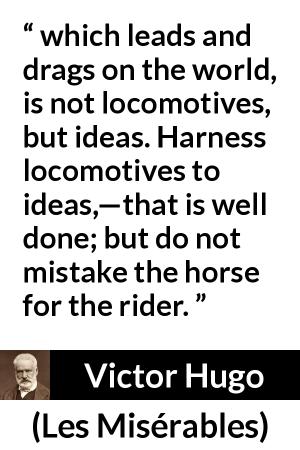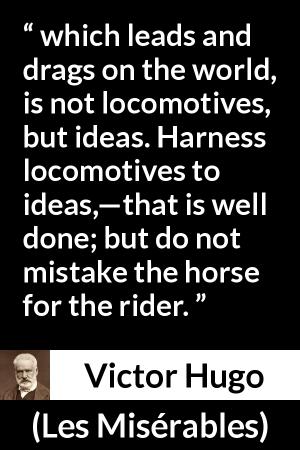“ which leads and drags on the world, is not locomotives, but ideas. Harness locomotives to ideas,—that is well done; but do not mistake the horse for the rider. ”
Victor Hugo, Les Misérables (1862). copy citation
| Author | Victor Hugo |
|---|---|
| Source | Les Misérables |
| Topic | progress ideas technology |
| Date | 1862 |
| Language | English |
| Reference | |
| Note | Translation by Isabel F. Hapgood in 1887 |
| Weblink | http://www.gutenberg.org/files/135/135-h/135-h.htm |
Context
“This rough, squat, heavy, hard, austere, almost misshapen, but assuredly majestic monument, stamped with a sort of magnificent and savage gravity, has disappeared, and left to reign in peace, a sort of gigantic stove, ornamented with its pipe, which has replaced the sombre fortress with its nine towers, very much as the bourgeoisie replaces the feudal classes. It is quite natural that a stove should be the symbol of an epoch in which a pot contains power. This epoch will pass away, people have already begun to understand that, if there can be force in a boiler, there can be no force except in the brain; in other words, that which leads and drags on the world, is not locomotives, but ideas. Harness locomotives to ideas,—that is well done; but do not mistake the horse for the rider.
At all events, to return to the Place de la Bastille, the architect of this elephant succeeded in making a grand thing out of plaster; the architect of the stove has succeeded in making a pretty thing out of bronze.” source
At all events, to return to the Place de la Bastille, the architect of this elephant succeeded in making a grand thing out of plaster; the architect of the stove has succeeded in making a pretty thing out of bronze.” source
